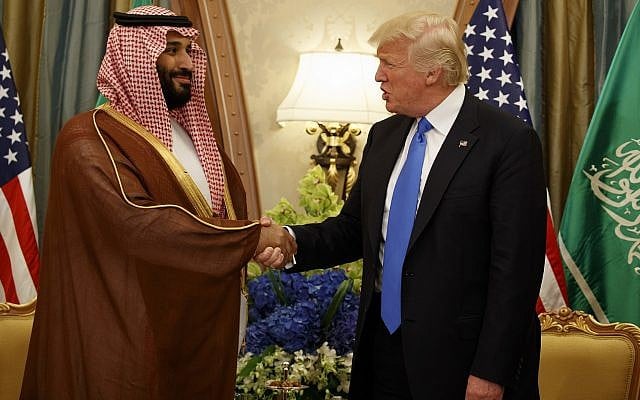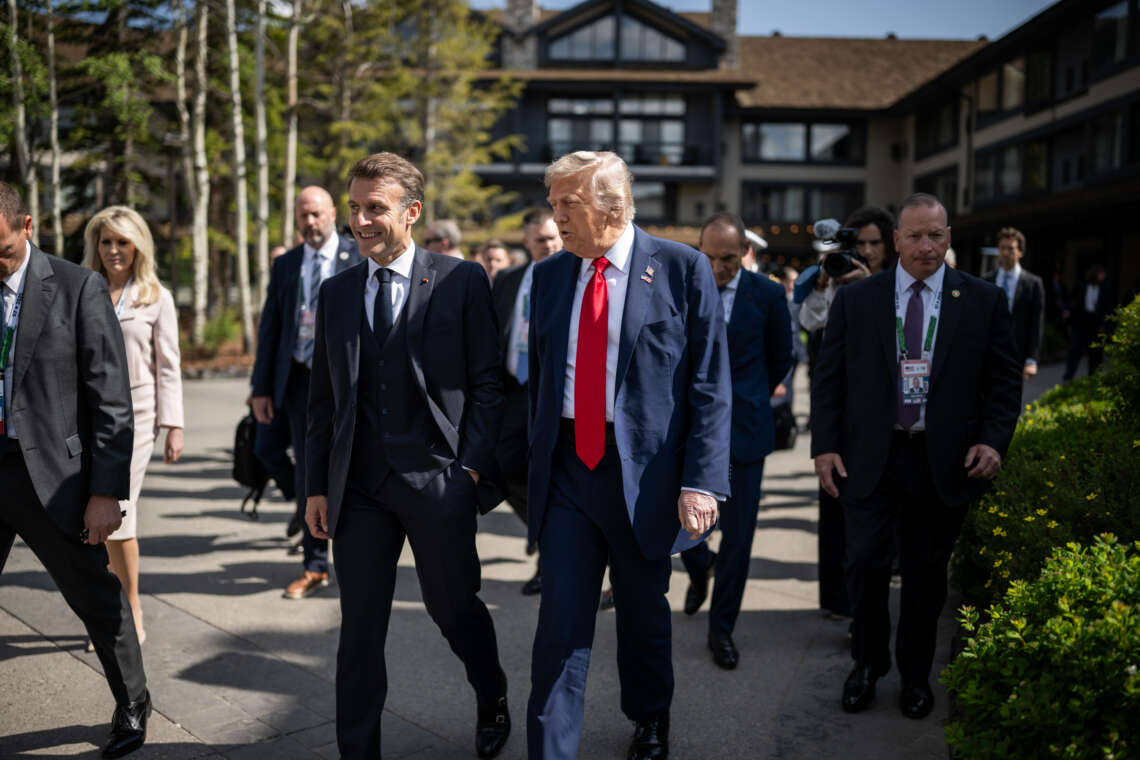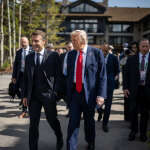The GCC bloc, which includes the UAE, Saudi Arabia, Oman, Kuwait, Qatar, and Bahrain, has been hit with a 10% tariff, placing them among the lower-tiered rates
US President Donald Trump has announced plans to visit Qatar, the United Arab Emirates (UAE), and Saudi Arabia next month, further strengthening ties with key Gulf allies. The announcement came as he signed executive orders in the Oval Office. When asked if the visit would take place in May, as previously reported, Trump responded, “It could be next month, maybe a little bit later.” He reaffirmed that Saudi Arabia was his first foreign destination after returning to office due to Riyadh’s pledge to invest nearly USD 1 trillion in US companies.
The visit comes as Trump has announced a 10% baseline tariff on all imports to the United States, with higher duties for certain countries, escalating trade tensions that have already rattled global markets. The move, unveiled at a White House event, marks a major shift in US trade policy and is expected to impact economies worldwide, including Gulf Cooperation Council (GCC) nations.
“It’s our declaration of independence,” Trump declared in the White House Rose Garden, unveiling a poster detailing the new tariff rates. The highest penalties include 34% on China and 20% on the European Union, aimed at countering what he described as unfair trade practices against US industries.
GCC & MENA Face Tariffs, With Exceptions for Oil
The GCC bloc, which includes the UAE, Saudi Arabia, Oman, Kuwait, Qatar, and Bahrain, has been hit with a 10% tariff, placing them among the lower-tiered rates. Other MENA nations face steeper penalties, with Syria and Iraq taxed at 41% and 39%, respectively. Jordan will see 20% tariffs, while Algeria (30%), Tunisia (28%), and Libya (31%) are also facing significant levies.
Despite the broad tariff imposition, oil and gas exports from the Gulf will remain exempt—a move aimed at preventing fuel price hikes in the US. Energy imports from Canada, Mexico, and Europe have also been spared, ensuring minimal disruption to global oil markets.
However, the non-energy sectors in the GCC, such as electronics, automobiles, construction, retail, and consumer goods, could face increased costs. “These industries rely heavily on imported goods, and the tariffs could lead to higher prices for consumers and reduced competitiveness,” said Hamza Dweik, head of trading at Saxo Bank.
Economic Impact and Market Reaction
Financial analysts warn that the ripple effects of these tariffs could disrupt global supply chains, increasing costs for businesses and consumers alike.
Following the announcement, regional stock markets reacted negatively. The Saudi Tadawul index fell 0.61%, while the UAE’s Abu Dhabi index dropped 2.86%, and Dubai’s DFM index lost 2.64%. Jordan saw the sharpest decline at 1.70%, while Qatar’s stock exchange gained 0.46%, an exception attributed to investor confidence in its diversified economy.
Additionally, a stronger US dollar due to tariff-related inflation risks could strain GCC economies, especially those with currencies pegged to the dollar, such as Saudi Arabia and the UAE. If global trade slows, Gulf nations may have to delay major infrastructure and diversification projects.
Several affected countries, including China, the EU, Australia, and Japan, have condemned the tariffs, with some already planning retaliatory measures. Experts warn that the growing protectionist stance from Washington could escalate into a broader trade war, impacting economies worldwide.
To mitigate risks, analysts suggest GCC businesses should explore trade diversification, leverage free zones, and adopt supply chain optimisation strategies. A PwC trade advisory report also recommends reassessing trade classifications and customs policies to minimise exposure to the new tariffs.
With the US linking trade policy to national security concerns, Gulf exporters must remain vigilant as Washington continues to revise its “Fair and Reciprocal Trade Plan”. The latest tariffs are set to take effect on April 5, with additional hikes for certain countries coming into force on April 9.
As trade tensions mount, the GCC must navigate this new economic reality carefully, balancing its deep economic ties with the US while seeking alternative markets to maintain stability in an increasingly uncertain global landscape.
Meanwhile, Trump has ignited controversy by suggesting he may seek a third term, despite clear constitutional limits. In a phone interview with NBC News, the president hinted at the possibility, stating, “There are methods which you could do it.” His remarks, reported by CBS News, have raised alarms over his willingness to challenge the 22nd Amendment, which limits presidents to two terms.
The 22nd Amendment, ratified in 1951, explicitly states: “No person shall be elected to the office of the President more than twice.” This amendment was introduced after President Franklin D. Roosevelt served four consecutive terms, ensuring a two-term limit for future presidents.













